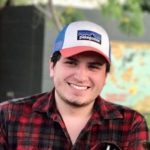Actor Warns 'New Era of Eugenics' Could Edit Him Away. It Wouldn't Stop There
A disabled British actor thinks the revival of eugenics in the 21st century could pose a danger to the very existence of people with similar disabilities.
The eugenics likely wouldn’t stop there, either.
British actor and television presenter Adam Pearson explained his fears in an interview with The Telegraph, a U.K. newspaper, that was published Wednesday.
Referring to his native nation’s past with the selective breeding of human beings, Pearson, who has an incurable genetic condition called neurofibromatosis, said he would have been a “goner” if he were born around the turn of the 20th century.
“I’d have never seen outside a set of railings again,” Pearson said. “All the things I take for granted as a disabled man in 2019 — popping around the corner for milk, going to the pub, hanging out with non-disabled people, even being with a woman unsupervised — would just not be options for me.”
After passage of 1913 Mental Deficiency Act in England, many disabled people were placed in institutions and sanitariums, where they endured horrific abuse.
The law reflected popular opinion at the time — that seemingly inferior people should be removed from the breeding pool.
Many other nations also flirted with eugenics programs, both publicly and in private.
Worldwide opinion of the heinous practice took a nosedive after the defeat of Nazi Germany.
Liberation of concentration camps and hospitals operating under Adolf Hitler’s regime opened people’s eyes as to the logical conclusion of eugenics: the mass murder of so-called “undesirables.”
While the notion of eugenics was floated and debated leading up to the 21st century, easy access to abortions took away the subject’s taboo connotations.
Now, the abortion of an unborn child with Down’s syndrome or other disability is seen as “health care.”
In places like Iceland, supporters of selective abortion claim Down syndrome has practically been eliminated thanks to the practice.
For Pearson, the revival of eugenics in recent years raises an interesting question.
“Are we entering a new era of eugenics”, Pearson wondered, “in which people like me will be edited from the population?”
With the admiration the liberal left has for Iceland due to their their Down syndrome “cure,” it looks like it won’t be long before this grim editing process is in full force in some places.
If this is in our future, where will it stop? Once Down syndrome is gone by way of mass murder, what will these medical professionals look to “cure” next?
Less than a hundred years ago, the Nazis attempted to purge the gene pool of not only disabled people, but also Jews, Gypsies, homosexuals and others.
In our own enlightened times, a woman’s “right” to abort her living, unborn baby is rabidly defended by the left. The possible presence of a disability in an unborn baby doesn’t factor into the arguments many abortion advocates make anymore, with plenty of abortion supporters calling for full and unrestricted access.
Gene editing and designer babies throw a whole new wrench in the works, painting a dark picture of a future determined not by the diversity of the genetic lottery, but by a doctor in a lab — a person with the inherent flaws and prejudices that come with being human.
“The world is an ecosystem and it needs a bit of diversity,” Pearson said.
As far as he’s concerned, even if there was a cure for neurofibromatosis, he wouldn’t be interested.
Pearson said his disability has made him a “kinder, more empathetic person.”
“When you know what it feels like to be treated horribly,” he said, “you understand the impact you’re having more. If I didn’t have a disability, I wouldn’t have had the same opportunities. I’d be the shell of a person I am.”
Truth and Accuracy
We are committed to truth and accuracy in all of our journalism. Read our editorial standards.
Advertise with The Western Journal and reach millions of highly engaged readers, while supporting our work. Advertise Today.










